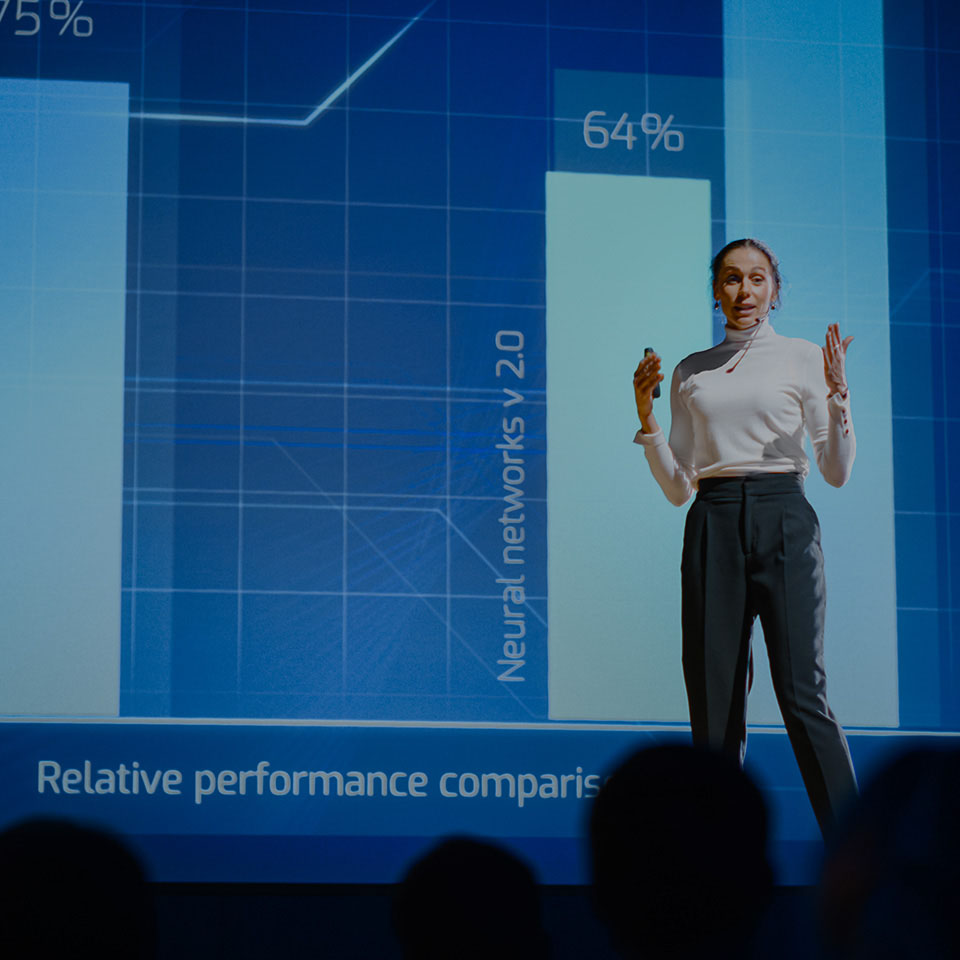In brief
- Intelligent automation can help insurance companies streamline their processes, reduce costs, and enhance customer experience.
- Robotic process automation, artificial intelligence, and machine learning can help firms automate repetitive and manual tasks, such as claims processing, underwriting, and customer service.
- As a result, insurers can provide faster and more accurate services, reduce errors and fraud, and ultimately, gain a competitive edge in the industry.
The retail insurance market is extremely competitive.
New digital insurers are setting the pace, providing innovative solutions to beat traditional insurance providers at their own game. No wonder. Many insurer systems were implemented at a time when employees spent their free time fretting over Y2K, playing Snake 2 on their Nokia 3300s and chorusing “My name is Maximus Decimus Meridius...” with friends and colleagues.
This leaves traditional clients with a problem. They can’t move away from their mainframes and current records because some could be long-term, life-term, or pension products. But they still want to connect with Gen X and leverage new technologies (e.g., cloud capability, artificial intelligence and machine learning). To compensate, we often see insurers attempting to bring in a digital layer on top of their existing stack, even though the system is getting on for 25 years old, built for a bygone era.
Years ago, insurance organizations created an application for each channel (one for a contact center, another for a mobile platform, and so on) which could easily take them years to roll out across all channels. These days, they’re competing against digital insurers with a “build once, reuse anywhere” application they can deploy on mobile, tablet or interactive voice response (IVR) devices while they're still building it.
A more analytical view by comparison
Once they’ve modernized their legacy systems, insurers are free to develop a more analytical mindset. Take the comparison engine phenomenon, for instance.
Comparison engines are extraordinary. They sweep in huge amounts of data and use it to position the most profitable policies. This leaves insurance providers to balance the risk and referral fees. Fielding millions of queries a day requires a combination of automation technologies and sound analytical capability to negotiate standard underwriting processes successfully.
Countries like the UK have a heavily regulated selling market; hence insurance companies have limited opportunities to ‘promote’ policies. Insurers can harvest intelligence from previous searches and consumer histories, ensuring their website or customer service agent can offer the right choices within a specific regulatory compliance framework.
Automatically, it’s a question of scale
And what about deploying new devices for black box and pay-on-use car insurance, or providing discounts for homeowners who install sensors for home insurance purposes (e.g., water leakage sensors)? Suddenly, the insurers need to assign workflows. Although intelligent automation may seem excessive for a home scenario, imagine an office building for 2,000 people where a large number of sensors must be monitored; if they fail, the insurance company must tweak the risk profile through sensible policy management. That’s where intelligent automation comes in.
Use intelligent automation to drive your business
Apart from helping clients resolve the above issues, Zoreza Global is heavily involved in standard underwriting and automated claims processing. Automated underwriting is an interesting case because the workflow is anything but simple. However, it can be automated for the majority of standard policies, while more complex ones are routed to the underwriters.
Let's say I'm underwriting a rocket module traveling from China to the United States to be launched. Clearly, to underwrite that kind of risk, you need a time-served artist to do the calculations. But using a highly skilled professional to underwrite a standard car commuting 80 miles a day along a regular highway is not the best use of his or her time. No, for that, you need a cost-efficient, artificial-intelligence-powered automated system.
Recording improvements
In the past, when data was weaker and scarcer, you needed mathematicians, statisticians and others to do all the underwriting. Today, machines help accelerate claims processing and deliver cost savings.
Many underwriting processes can be automated, and increasingly, industry leaders are introducing intelligent automation solutions to help review and learn from their decisions. For example, a team member underwrites an auto commute from A to B based on a particular risk profile. Then, a year later, they realize the risk profile was incorrect. You don't need someone to record that because the systems will have automatically captured the information, improving the risk profile for that type of customer and those types of journeys as they go. Today, the UK has auto claims databases that are shared and profiled across several motor insurance providers.
Customer satisfaction is key
If you access the comparison engines for 6 months to compare products for an identical applicant, car and profile, each month you’ll see a different insurance company come out on top. Probably, the insurance provider is discounting the risk to buy business because they’re short on sales that month. Once they achieve a sizeable customer base, they increase the risk cost again and are no longer competitive. And as intelligent customers use the Defaqto Rating to compare results, claims payout and the customer experience are the only real differentiators left.
Fully automated insurers work the system most profitably, happy in the knowledge that intelligent automation insurance is delivering an exceptional customer experience that turns prospects into patrons, bringing in renewals year after year.
Rapid STP payouts
One of the determining factors people use when buying insurance is a company’s claims management history. Many brands advertise high claim-payout rates, even though their underlying systems cannot support straight-through processing (STP).
Card companies use automated STP extensively. If you call your insurance provider to dispute a $5 charge, chances are you won't even speak to anyone. The company simply credits the $5 back to your account because it's not worth assigning a customer service agent to the query.
Couldn’t insurance companies do the same?
Some can. In fact, I had a rewarding STP experience with travel insurance (bought through my bank) myself. I was claiming $50 for a doctor's bill incurred while traveling. Within something like 90 minutes of uploading the bill, the $50 was back in my bank account. I’d had a premier account with the bank for 10 years, so they knew my profile and credit history. For them, the amount wasn’t even worth picking up the phone. Consequently, I stayed with them, buying several other banking and insurance services.
Other things like automated STP elevate the customer experience, giving insurers the competitive edge - an advantage Zoreza Global is pleased to enable and support.
Sharper customer service and fraud detection
Online retail customers are used to Amazon service and same-day delivery, and insurance providers need to match those high standards. A year ago, my team helped an insurance company automate its claims processing system and accelerate payments. It was taking them 2 or 3 days to issue a payment after they had already decided the claim should be paid. Now, it takes them minutes. Customer satisfaction has improved and calls to the contact center have reduced.
Fraud management is also on the intelligent automation in insurance agenda. It’s much more cost-effective to prepare for fraudulent behavior than to try and repair the damage afterward. Fraud engines help you detect aberrant behavior and Zoreza Global, the innovative insurance software company, has built an engine on machine learning lines to help clients identify fraudulent claims. The engine learns company policy and predicts whether cases could be fraudulent. Potential frauds are routed first to a manual approver or reviewer then to legal review, or they’re accepted and paid.
However, when handled poorly, the fraud detection process delays claim payouts and triggers customer dissatisfaction. But if insurance organizations keep their claims processing too loose, they start hemorrhaging money. It’s a delicate balance and this is where the Zoreza Global engine comes into its own. It gives clients certain automated options, like choosing not to process fraud worth less than $25 or whatever for a customer who's been with them for 3 years or more. If issues emerge three times in 3 months, then to review manually before paying out, accelerating disbursements and reducing fraud. This approach makes insurers more secure, improves customer SAT scores and grows the business.
Combating increased exposure
We’re also using intelligent automation and analytics to help the insurance industry with the growing problem of cybersecurity and climate risk. The Russia/Ukraine conflict has heightened sensitivity toward cybersecurity. To counteract growing cyber-attacks from various actors, we’re working with several insurance companies on strengthening their response. The threat is so massive that one company has launched the “world’s first” cyber catastrophe bond — a $45 million high-yield debt instrument to help insurers battle escalating breaches (not conflict or state-sponsored) and natural disasters. The catastrophe bond draws from a financial pool of $trillions and pays cyber-attack claims that exceed $300 million.
A year or so ago, when McKinsey surveyed members of their chief risk officer network, they found that 60% said although they understood the severity of climate change, they weren’t fully prepared for eventualities. Over 80% claimed they were focusing on building stress tests. Only 18% were concentrating on new solutions for clients. Thankfully, several insurance providers have upped their commitment to design a more determined and comprehensive climate risk strategy since McKinsey carried out their survey. This includes digital transformation, particularly the implementation of data analytics, intelligent automation and enhanced control systems.
Automating intelligence
Implementing artificial intelligence, machine learning, digital transformation, robotic process automation, OCR and emerging automation technologies can liberate < 90% of the budget allocated to complex and resource-hungry operations like claims processing. Other suitable areas for intelligent automation include:
Quoting: Intelligent automation uploads customer data regardless of format and assesses the risk. It avoids using high-value underwriters for low-level tasks.
Healthcare: Medical and insurance claims data can arrive in any of several configurations. Post-ingestion, intelligent automation sends the information to the underwriters, speeding up pricing and claims management.
Disbursement: OCR and machine learning work together to streamline invoice, receipt and relevant data reconciliation.
First notification of loss (FNOL): Intelligent automation settles a large proportion of auto claims immediately through claims processing procedures like the instant identification of write-offs.
Estimating: Evaluating vehicle damage takes considerable time for skilled professionals. AI-driven automated claims processing assesses and settles claims right away.
Classifying and assessing: Predictive analytics provide targeted insights for commercial insurers to help them assay organizations.
Communicating: AI-powered chatbots process < 50% of digital customer contact, creating cost savings, improving operational efficiency and enhancing the customer experience.
Become more profitable
Intelligent automation reduces OpEx and CapEx, cutting overheads and increasing profit margins. And automation tools never lose concentration or take a duvet day, enabling more reliable and accurate regulatory compliance processes. This reduces the manual claims workload by < 80%, slicing the lifecycle in half and simplifying the whole process, thereby improving the customer experience, attraction and retention.
Let’s have an intelligent discussion
If you’d like to talk over how Zoreza Global and intelligent automation could strengthen your bottom line, contact luxoft.com/contact-form or visit luxoft.com/industries/insurance.






